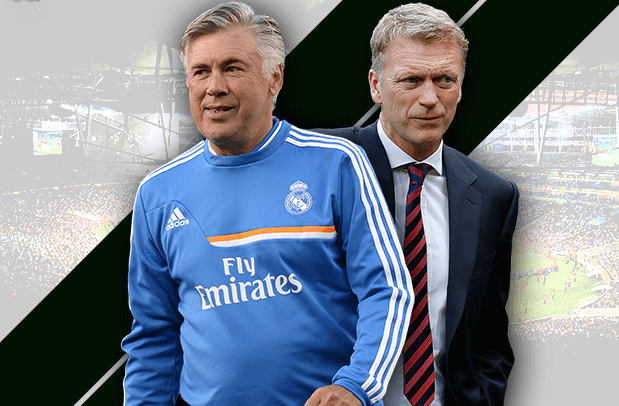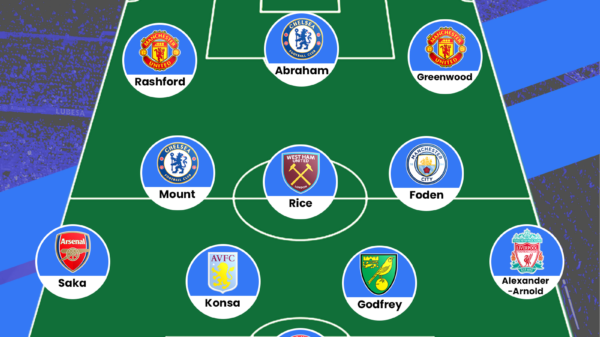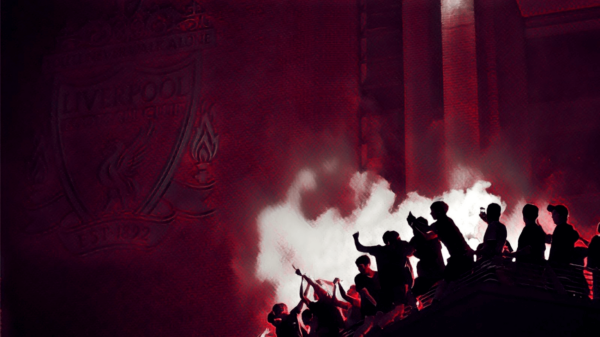Much is made of managerial appointments and their importance to the fortunes of a club. Freddy Denis provides his opinion.
The merry-go-round of managerial appointments is always an exciting topic. The fascination to predict what might happen when a square peg is forced into a round hole, or the friction between managers and the players (or the fans) they have history with, is part and parcel of the thrills of following the beautiful game.

More often than not, they also decide a club’s fate. The appointment – or firing – of a manager tends to directly correlate with the team’s form, its style of play and the happiness of its fans. It’s tantalizing, it’s a different flavour, and that change could either help or hinder the club, much like how involving new managers in the mentoring process changes the dynamic in the workplace. In recent times, a single person (i.e. the manager) has been directly associated with deciding the paths of the team they manage.
However, is that really how the footballing world works? Are the press being too naïve (and indeed, too lazy) in attributing successes and failures at one desk alone?
In some cases, they aren’t. David Moyes’ appointment at Manchester United was followed by a dramatic, abysmal and somewhat ludicrous descent to mediocrity. The mere presence of Rafa Benitez at Real Madrid leeched belief from the club, who still hold “that Spanish waiter” responsible for their regressive style of play and faltering La Liga title challenge. Jose Mourinho single-handedly killed his players’ motivations, berated them in public and lost the Chelsea dressing room.
In such cases, it’s easy to see why managers are of importance. They instill belief in the players and give them something to fight for. Moyes and Benitez would never have been taken seriously by the players they were managing. It’s easy to imagine someone like Cristiano Ronaldo listening to Benitez appointing him his role and inwardly mooting, “What has this guy achieved to be pushing me around? Certainly not more than me.”
However, these are exceptions rather than norms. They were direct results of players giving up on the manager, simply because of his history.
Contrast that with someone like Roberto Martinez. Granted, he was booted by a relegated Wigan Athletic before given the Everton job, but the pedigree he had attained in the Premier League was enough. It’s not unreasonable to suggest players like Kevin Mirallas and Ross Barkley were looking at him and thinking, “Hey, here’s a forward-thinking manager with an attacking philosophy I’d want a slice of. I believe in him.” That belief dragged them to fifth in 2014.
Managers aren’t footballing demons who control everything from training methods to toilet facilities. The mere presence of a big-shot manager could instigate the team to fight for him in the short-term. Initially, Louis van Gaal at Manchester United was a personality. He had an aura and ego about him that made United do his bidding. However, things went south when everyone started poking holes in his philosophy, and they still are.
Look at Jurgen Klopp too. He came into Liverpool with much pedigree and excitement, but the win-ratio shows things haven’t changed much from the previous regime. Indeed, subtract belief from the Anfield camp, and you won’t find any difference between the Klopp regime and Brendan Rodgers’.
I’m not for one moment suggesting Liverpool should consider sacking Klopp. What I’m saying is that even a persona like Jurgen cannot single-handedly flip the fortunes of a football club. In a strictly economic sense, managers are like entrepreneurs, but even entrepreneurs need the compatible land, labour and capital to produce something special.
Luis Enrique at Barcelona didn’t have to do much. He already had staggeringly good scouting systems, youth academies and training coaches at his disposal, waiting for him to win the treble. Ronald Koeman faced the same smooth transition when he took over from Mauricio Pochettino at Southampton. Claudio Ranieri is a likeable chap, but you don’t expect someone like him to guide Leicester City to the top alone. All that good work was done in the transfer market, where players like Shinji Okazaki, Riyad Mahrez and Jamie Vardy were plucked. All they needed was a positive stimulus to awaken that sleeping beast within.
Anyone following Lyon would know how competent a manager Remi Garde is. Then why are Aston Villa yet rooted to the bottom? It’s not because Garde lost his mojo the moment he set foot into England. It’s because – and I’m certain many will agree with me on this – the entire Aston Villa backbone needs restructuring, more than anything else. You see what happened at Manchester United after Moyes replaced his backroom team, tearing down the cornerstones.
Football isn’t about managers alone. Sure, they can give players a kick up their backside and keep the motor running for a while, but then what? Who keeps the gas running?
Chelsea should get back on the horse now that the players have a friendlier, more likeable manager to work with. They already have a sound backroom staff and infrastructure. The same might apply to Bayern Munich after Carlo Ancelotti joins them. It’s all about team work. When a club succeeds everyone must get their slice, and when they don’t, it cannot only be the manager who’s scapegoated.
In olden times, perhaps hands-on managers like Sir Alex Ferguson and Arsene Wenger worked a tick. However, modern clubs don’t thrive on dictatorships, they thrive on collaborations. The managers absorb the data offered to them by analysts, scouts, coaches, tacticians, physios, financiers and many more, and they use that to create something special. The manager instills belief into the club to tap into something larger than themselves, but most of the work is done by the people he’s leading.
Most media outlets and fans should think about that, before they start waving banners demanding the resignation of one man.
Written by Freddy Denis
- Euro 2016: Talent or Cohesion? - June 26, 2016
- Are football managers really as important as they’re made out to be? - January 5, 2016
- Mathieu Debuchy: Stick or twist? - December 22, 2015



























































